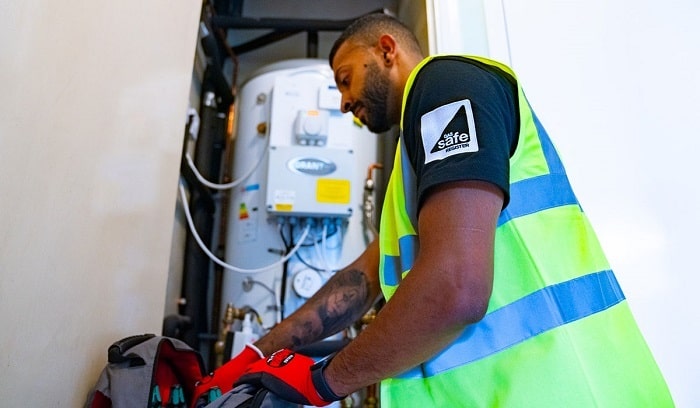.jpg)
A boiler is an essential part of an integrated heating system, with the prime purpose of heating rooms and supplying warm water to taps. Whether it is an entirely new installation or a replacement of an old unit, selecting the right-sized boiler for homes is not a simple and straightforward decision. It is not the make or model that matters. Although the first thing one needs to consider might be a boiler manufactured with the latest technology, what really matters is its size.
The size of a boiler is not about its physical dimensions; it refers to its “power output” or “output rating”, which is measured in Kilowatts (kW). It is the measurement of energy that a boiler can produce. So, what size boiler a home really needs is the most relevant question, often raised. An undersized boiler will not be capable of providing sufficient warmth and hot water, while an oversized boiler may result in energy wastage, increased energy bills, and accelerated wear and tear. In the UK, where energy efficiency is a prime concern and winter is often harshly cold, finding the perfect boiler size is critical for both comfort and cost savings.
This blog provides every important aspect of selecting the right-sized boiler.

Choosing the correct size of a boiler is highly important. Neither an undersized nor an oversized boiler is a good choice.
An undersized boiler, also referred to as an "underpowered" boiler, is a constant nuisance for your home. While it may not sufficiently heat the rooms, the issue of hot water supply is another problem you may often face.
An oversized or overpowered boiler is also not a wise choice due to the following reasons:
A boiler that is too small or too large is a poor choice in many ways, including higher running costs, reduced lifespan, higher energy bills, and increased repair and maintenance requirements.
The size of a boiler is measured in kilowatts (kW), which refers to the amount of power it can output. To reach a correct power output requirement, the power needed to heat all the radiators in a home is the prime consideration. Side by side, the power required to heat water for the taps, showers, kitchen, and bathrooms also needs to be considered.
The selection of the right-sized boiler depends on various factors, summarized below:
Accordingly, the number of radiators, bedrooms, and bathrooms forms the basis of calculating the correct power output required by a home.
Generally, the size of the boiler can be calculated as follows:
While the size of the boiler required for your home can be determined by considering the above factors, it is always advisable to consult a professional boiler engineer to reach the final decision. It might be helpful in many ways. Professional advice will also include how you can make your property energy efficient, which often has a direct impact on the selection of the correctly sized boiler.
A professional boiler engineer can help you as follows:
Heating and hot water are the essential requirement of homes in the UK, which necessitates the installation of a boiler as part of the integrated heating system. The boiler has to work consistently to ensure the availability of hot water and heating in a home, which is entirely dependent on its size. Hence, a right-sized boiler is the key to a warm and cozy atmosphere during the colder parts of the year.
Contrary to the general perception, the size of a boiler does not refer to its dimensions; it is related to its output power rating, measured in Kilowatts and mentioned in terms of kW. The size of a boiler depends on various factors, such as the number of bedrooms, radiators, washrooms, and the number of family members. So, for a home with a greater number of radiators and bedrooms, a larger boiler would be required. Similarly, the usage of hot water also affects the size of the boiler, as more people might be using hot water simultaneously, for which a larger boiler would be required. On the other hand, a home with one bathroom and 5 to 10 radiators can be heated with a small boiler.
So, the selection of the right-sized boiler is highly important.
Fill the required information to order a gas safety certificate instantly.
Are you curious about your Gas Safety Certificate? With these simple steps, learn how to check its status and ensure your peace of mind.
Find out why your boiler is vibrating loudly. Explore causes, troubleshooting tips, and the importance of prompt repairs for a quiet and efficient heating system at home.
Gas engineers perform a gas safety check to ensure your gas appliances are safe. Read to learn what more you can expect from the gas safety check.
Learn about the importance of gas safety certificates for landlords and the legal consequences of not having a valid certificate.
Know your tenant rights: How long can a UK landlord leave you without hot water? Stay informed, assert your rights.
Every landlord in the UK is legally bound to follow gas safety regulations as per the Gas Safety (Installations and Use) Regulations 1998.
Fill out the following enquiry form and we will contact you as soon as possible.